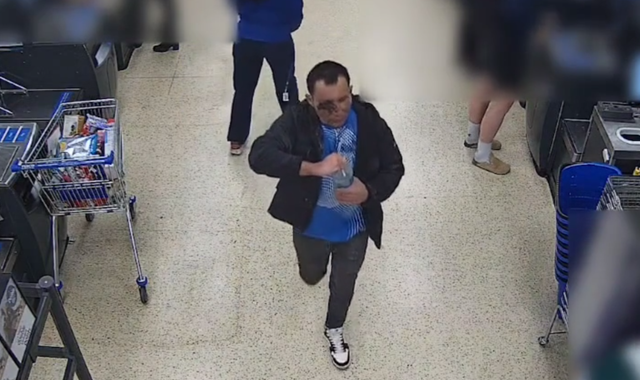Clapham chemical attack: Reward of up to £20,000 offered in hunt for Abdul Ezedi as police release new information about his movements

A reward of up to £20,000 is being offered for information leading to the arrest of Clapham chemical attack suspect Abdul Ezedi, as police release new information about his movements.
Police have also released new information about the alkaline substance that was used for the attack - saying laboratory analysis shows it was either liquid sodium hydroxide or liquid sodium carbonate.
Investigators believe there are people who know the location of Ezedi who have not come forward.
They warned anyone found "harbouring or assisting him" will be arrested, as the search is now in its fifth day.
Ezedi, 35, has been urged by police to hand himself in after going on the run following the attack involving a corrosive alkaline substance in Clapham, southwest London, on Wednesday 31 January.
Twelve people were injured, including a mother, 31, and her two daughters, aged three and eight. All three remain in hospital, with the mother's injuries thought to be "life-changing".
Ezedi and the mother were in a relationship, a relative of the suspect has told Sky News.
Police have released CCTV images of Ezedi during the search which appear to show extensive injuries to the right side of his face.
The Metropolitan Police said today that the last confirmed sighting of him is now at 9.33pm on the day of the attack, when he exited Tower Hill Underground station, on the eastern edge of the City of London.
He had changed trains at Victoria, after arriving at the Tube station on the Victoria Line at 9.10pm and departing on the eastbound District Line at 9.16pm.
The Met has said it is continuing to analyse CCTV footage alongside "many other lines of inquiry" as they attempt to locate Ezedi.
The force has released new video filmed at around 8.45pm showing him in a Tesco on Caledonian Road in north London shortly after the attack. The Met had earlier released images of him from the same visit to the supermarket.
The Met has said dozens of officers are working to trace Ezedi.
The force is also working with the Home Office, UK Border Force, UK Visas and Immigration, the National Crime Agency, British Transport Police and several other police forces.
Met Commander Jon Savell said: "I am hugely grateful to the public for the significant number of calls that we have received.
"Your help is critical. A reward of up to £20,000 is now available for information leading to his arrest.
"I must warn anyone who is helping Ezedi to evade capture - if you are harbouring or assisting him then you will be arrested.
"Our inquiry line is staffed 24/7 by specialist detectives who are progressing enquiries around-the-clock.
"If you know where he is or have information that may assist call them now."
Read more:
How was convicted sex offender Ezedi granted asylum in the UK?
Police hunting Clapham chemical attack suspect raid 'brother's home'
On Saturday, police said officers have searched five addresses - two in east London and three in Newcastle - in their efforts to locate Ezedi.
Police bodycam footage showed officers entering a flat in Newcastle where empty containers with corrosive warnings were found.
A laboratory has now carried out analysis of the substance found at the scene of the attack.
Commander Savell said on Sunday: "The liquid used in the attack was a very strong concentrated corrosive substance, either liquid sodium hydroxide or liquid sodium carbonate.
"Further enquiries are ongoing including comparison with the containers seized from Ezedi's address in Newcastle."
The attack has raised questions about the asylum process in the UK, with Ezedi having arrived in the UK on a lorry in 2016 after fleeing Afghanistan.
After two failed attempts, his asylum claim to stay in the UK was granted in 2020.
This was despite the fact he was handed a suspended sentence for a sexual offence in November 2018.
Ezedi was allowed to stay in the country after a priest confirmed he had converted to Christianity and had said he was "wholly committed" to his new religion, Sky News understands.
An asylum seeker can claim asylum in the UK on the basis of religious persecution in their native country.


